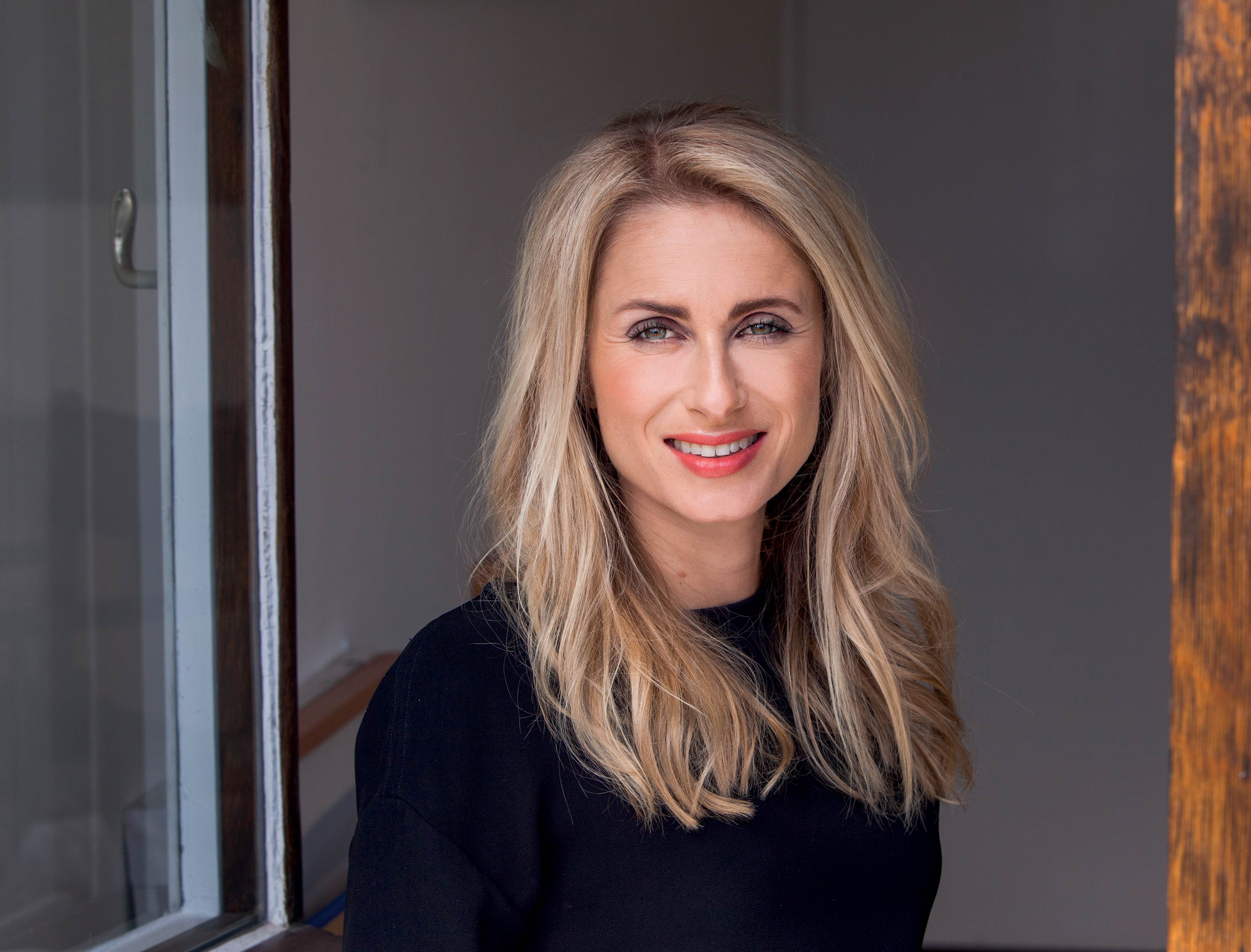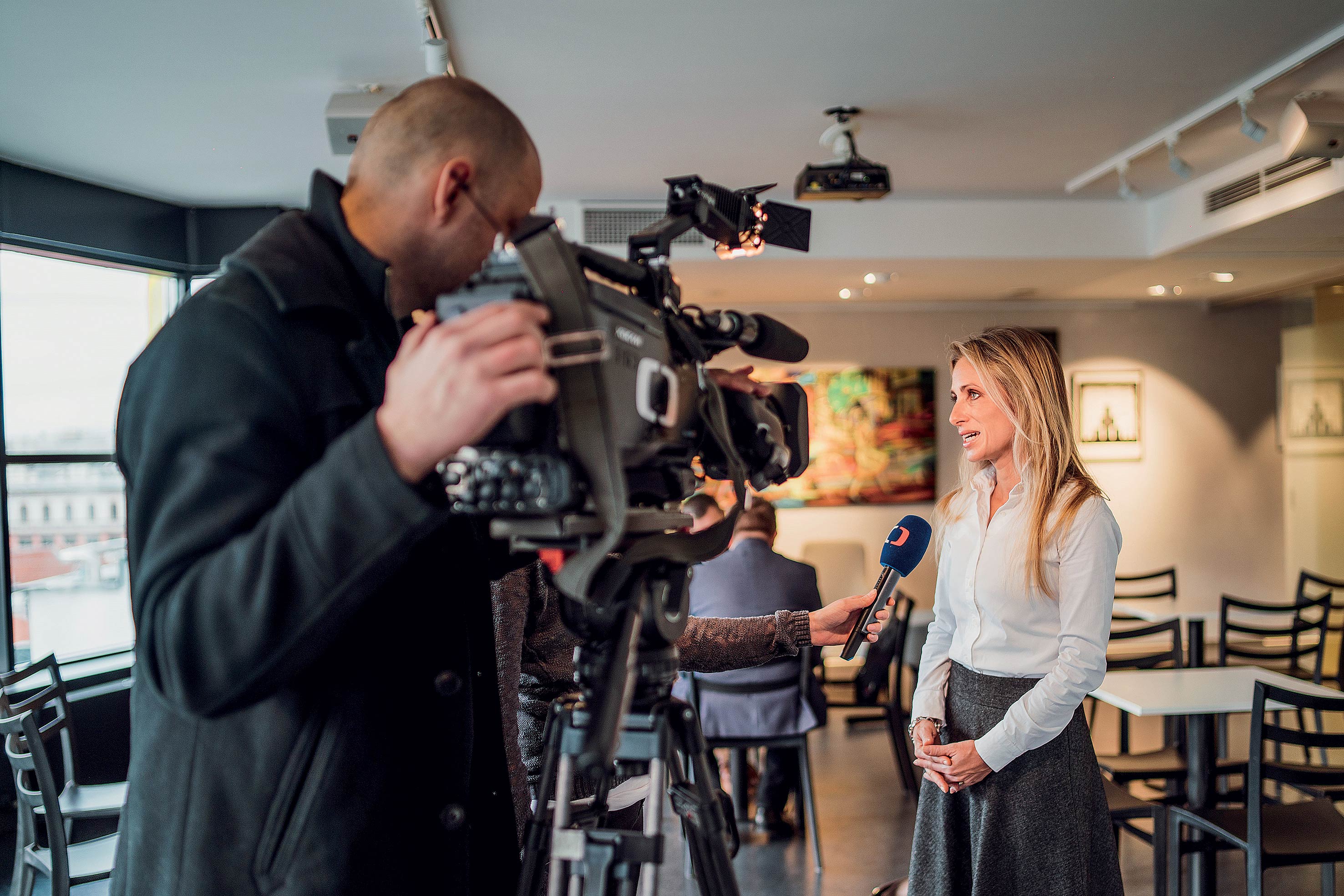The new government has been sworn in three months ago and we are headed for an EU presidency, which will shift the focus to issues such as the Green Deal, migration, and the digital agenda. We talked to Vice-President of the European Parliament, Dita Charanzová, about Czechia’s prospects in Brussels.
You were recently re-elected as vice-president of the European Parliament. What does that mean to you?
A great deal. Not just because I am the first Czech MEP to ever get re-elected to this position, but mainly because it represents validation from my colleagues for the work I have been doing. I deeply appreciate their support. At the same time, I am bound by this re-election to do the very best I can during the next two-and-a-half years to benefit the institution I represent as well as Czechia and its people. This second term will see us facing many challenges. First – Czechia’s second EU presidency is coming up in a few short months. Second – negotiations regarding several key measures related to the Green agenda are planned in the European Parliament, which will greatly influence the future of the Czech economy. Furthermore, we are now discussing massive changes to the online environment, which is an area where I am fighting for the rights of consumers and smaller companies in relation to hegemonies like Facebook and Google.
Are you expecting the new government to bring any changes to Czech-EU relations?
This government proclaims to have a pro-European foreign policy, so I expect no major changes. The new cabinet should naturally keep pushing for Czech interests in the European Union. To negotiate amenable conditions when it comes to the anticipated and much talked about Green Deal or the negotiations surrounding the direction of the Union’s interior market. We shall see how capable our new ministers prove to be as negotiators, not just during the term of our presidency. Andrej Babiš had an advantage as PM due to the ANO movement being a part of the third biggest faction – Renew Europe – which counts French President, Macron, or Dutch PM, Rutte, among its members. And so, whenever he came to Brussels, he had the opportunity to discuss his priorities with these peers. Conversely, Prime Minister Fiala and his ODS are members of the ECR minority faction, where his only partner is Polish PM, Morawiecki, whose standing in the EU is rather problematic. This means that Petr Fiala will have little chance to discuss Czech interests with major players prior to official negotiations, which could be a major setback for him.
European matters will now be handled predominantly by the trio of Petr Fiala, Minister for European Affairs, Mikuláš Bek, and Minister of Foreign Affairs, Jan Lipavský. Will that work? The ODS, Pirate, and STAN parties all have rather different stances on the EU after all...
Honestly, I am quite curious to see how it plays out. Prime Minister Fiala was rather critical of the Green Deal and the ban on combustion engines in the past, whereas the Pirates belong to the Green faction in the European Parliament, which unequivocally supports the Green Deal and aims even higher than the goals set in today’s legislative proposals. The coalition MPs are also rather divided when it comes to the matter of migration policy, which will be up for debate during our presidency as well. All of the above makes it hard for me to read what the current government’s future plans regarding the EU are.
You are an MEP for ANO, the party that is now in the opposition. Can the three aforementioned gentlemen still come to you for advice or support regardless of that?
I have stated publicly several times that I have an open-door policy in this regard. I have been elected for the ANO movement, but I fight for Czech interests here in the EU, and I am opposed to letting domestic politics influence what happens on the European level. The Czech presidency is an important and prestigious matter that we have to handle well as a country, allowing us to forget the humiliation we were faced with when the government toppled during our first presidency. It is a huge opportunity for all of us, no matter if we are ODS or ANO.
How ready are we for this presidency?
I am certain that we are ready when it comes to the administrative part, but we are a little behind in the political. The poor language skills of our ministers as well as the insufficient knowledge of certain members of the government regarding the workings of Union institutions have been frequently discussed, even in foreign media. The ministers will need to make strong connections in Brussels in the coming months, only then will they be able to negotiate suitable compromises not just in the European Council with its twenty-seven countries, but also the European Parliament.
What are the main priorities of the Czech presidency?
The government has not shared them yet, so we do not know, officially. It is quite clear, however, that the Green Deal will be on the agenda. Taking into account Czechia’s position, we will need to negotiate a compromise while keeping in mind the country’s energy mix, industrial and business options, and last but not least, the impact this policy will have on our people. So far, the Czech stance has not been clearly defined, however. The Prime Minister plans to defend nuclear energy in the EU, but the Pirates never voted for further nuclear development in the EP, despite its importance to Czechia. Migration is another issue that will certainly come up; we shall see what the government’s priorities are in this regard, taking into account the potentially deteriorating situation in Ukraine. We might see an eastward migration corridor opening up. Next on the list is the digital agenda as well as other matters that may arise based on global developments. The agenda is also likely to change based on what gets approved or what negotiations are opened during France’s current presidency as well.
The Conference on the Future of Europe is slowly coming to an end. It was to serve as a platform for the common people of the EU to give their opinion on the functioning and direction of the EU. Has anything surprised you about it? And did the Czech people make good use of this platform? I feel that the Conference was rather poorly advertised here in Czechia…
The first stage of the Conference is coming to an end, we are now entering the phase where the most enticing suggestions from the people will be selected. I am pleased to see the high number of submitted ideas, I myself very much like the idea of a digital European identity card as well as abolishing the so-called geo-blocking that is stopping us from using certain kinds of internet services due to the provider’s policies (things such as watching foreign TV shows). The Czech people had the opportunity to speak their mind online through a dedicated internet platform as well as through citizen panels where they could meet in person.
As for our citizens’ involvement, we are somewhere in the middle. Low interest in European affairs is a long-term issue in Czechia that we have yet to find a solution to. And so, I would like to open up the seemingly mossbacked European institutions to the people, to invite them to Strassbourg and Brussels, talk to them, explain to them what it is that we do, and keep asking them. Asking them what kind of Europe they want and what they would change about the current one. The Union influences our everyday lives, making this discussion that much more important.

CV
Dita Charanzová is a diplomat, manager, consultant and former senior civil servant on EU issues. She has been a Member of the European Parliament since July 2014 (without political affiliation on behalf of ANO) and, since July 2019, its Vice-President
#She was born on April 30, 1975, in Prague. She graduated from the Prague University of Economics and Business and later graduated from the Diplomatic Academy in Madrid.
She worked for eight years in diplomatic services.
She focuses mainly on three areas in the European Parliament: consumer protection, digital economy and international trade
#She is Vice-Chair of the Committee on the Internal Market and Consumer Protection (IMCO) and a substitute member of the Committee on International Trade (INTA). In addition to committees, she is a member of four parliamentary delegations: Delegation to the EU-Latin America Parliamentary Assembly (EUROLAT), Delegation for relations with MERCOSUR, Delegation for relations with the African, Caribbean and Pacific Group of States (CARIFORUM) and Delegation to the EU-Armenia Parliamentary Cooperation Committees, EU-Azerbaijan and EU-Georgia.

Presidency
The presiding country has a major say in determining the agenda of the Council of the EU for half a year, be it political or specialized matters. The presiding country decides which legislative proposals will be discussed as well as the pace and direction of these discussions. The presidency gives countries a chance to bring to the fore issues that are key for them. During its presidency of the Council of the EU, the presiding country has direct influence over the negotiated legislation, political conferences, and many other events. Czechia will take over the presidency of the Council of the EU on July 1, 2022. (Source: Czech Government’s official position on the presidency of the Council of the EU; published by the Office of the Czech Government; amended for print)